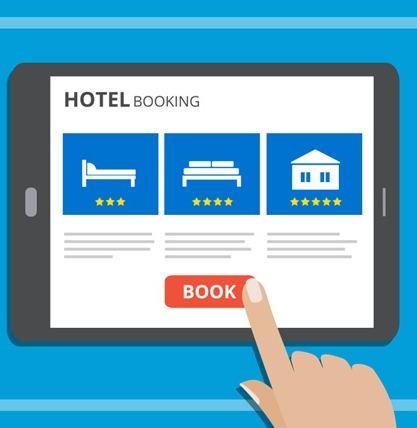What direct bookings are? So what is the difference between direct bookings and indirect bookings and indirect bookings?

Editor: Kyros Asfis, Managing Director της Nea Mesa Hotel and Tourism Digital Marketing Agency
According to the official data of the Hotel Chamber of Greece for 2020, there are more than 10,000 hotel companies. Year after year the competition between these companies grows.
Regarding the definition of direct bookings, it is clear that it is not clear enough how direct bookings are defined. In this article we will define and classify the various sources of bookings in order to have a clear picture of the definition of direct bookings as many businesses are accustomed to count bookings through OTAs (such as Booking.com, Expedia etc.) as direct bookings.
Direct bookings vs indirect bookings
So what is the difference between direct bookings and indirect bookings and indirect bookings?
Direct bookings
Direct bookings are divided into two subcategories. Online and offline.
As online we characterize the reservations that are made exclusively through the company’s website.
These reservations are made by individual travelers only (reservations made on behalf of travel agencies are excluded even if they are made through the booking engine of the company)
As offline we characterize the reservations made by phone by travelers in contact with the hotel / accommodation or by direct visit to it.
Advantages of direct bookings
- Increase of the profit margin as no commissions are attributed to third parties.
- The company maintains a database with customer data for future use.
- Customers making direct bookings tend to be more loyal customers and more likely to return to the hotel or accommodation if they have had a good stay.
- Customers who make direct bookings tend to spend more money on the business in which they reside.
Disadvantages of direct bookings
- A marketing budget is required which includes the design and implementation of a comprehensive digital marketing strategy (maintaining and updating social media accounts alone is not enough).
- The results may be slow to show (it is something that is affected by both the digital marketing plan and the budget that will be allocated.
- Specialization is required to achieve the goals.
Non-direct bookings
In the category of indirect bookings we again encounter two subcategories. Online and offline indirect reservations.
Online indirect bookings come from OTAs and through GDS (Global Distribution Systems)
Offline indirect bookings are made by Tour Operators and Travel Agents.
Note: For Metasearch Engines (such as Trivago, Kayak, HotelsCombined, Tripadvisor, Google, etc.) bookings are categorized according to whether they were made online with the business booking engine (in which case they are considered a direct booking) or the platform of a 3rd partner has been selected (so it counts as indirect booking)
Advantages of indirect bookings
- High recognizability and trust of brands on the part of users.
- Large dispersion of the business (multiple touch points) that helps its dissemination.
Disadvantages of indirect bookings
- Not completely controlled price of rooms.
- High commission
- Hide customer data (which should be collected and stored during the check-in process to form a database)
Should I choose to support direct or indirect bookings for my hotel?
In this answer there is not only one and only correct answer. Choosing the right tactics to follow is influenced by many different factors. Parameters such as the years of operation of the business, the existing sales mix, the type of visitors should be considered and taken into account. The main goal of every business should be to support and improve direct bookings, while maintaining the source of revenue generated by the other channels.
Our goal is not to “fight” the other channels, but to exploit and “steal” sales from them. I think the best description of this tactic in English is enclosed in the phrase: “ride the wave”, that is, we take advantage of the dynamics of the strongest sales channel and try to extract sales from it. In my next article I will talk about the techniques we can follow in order to “steal” sales from OTA’s channel.

